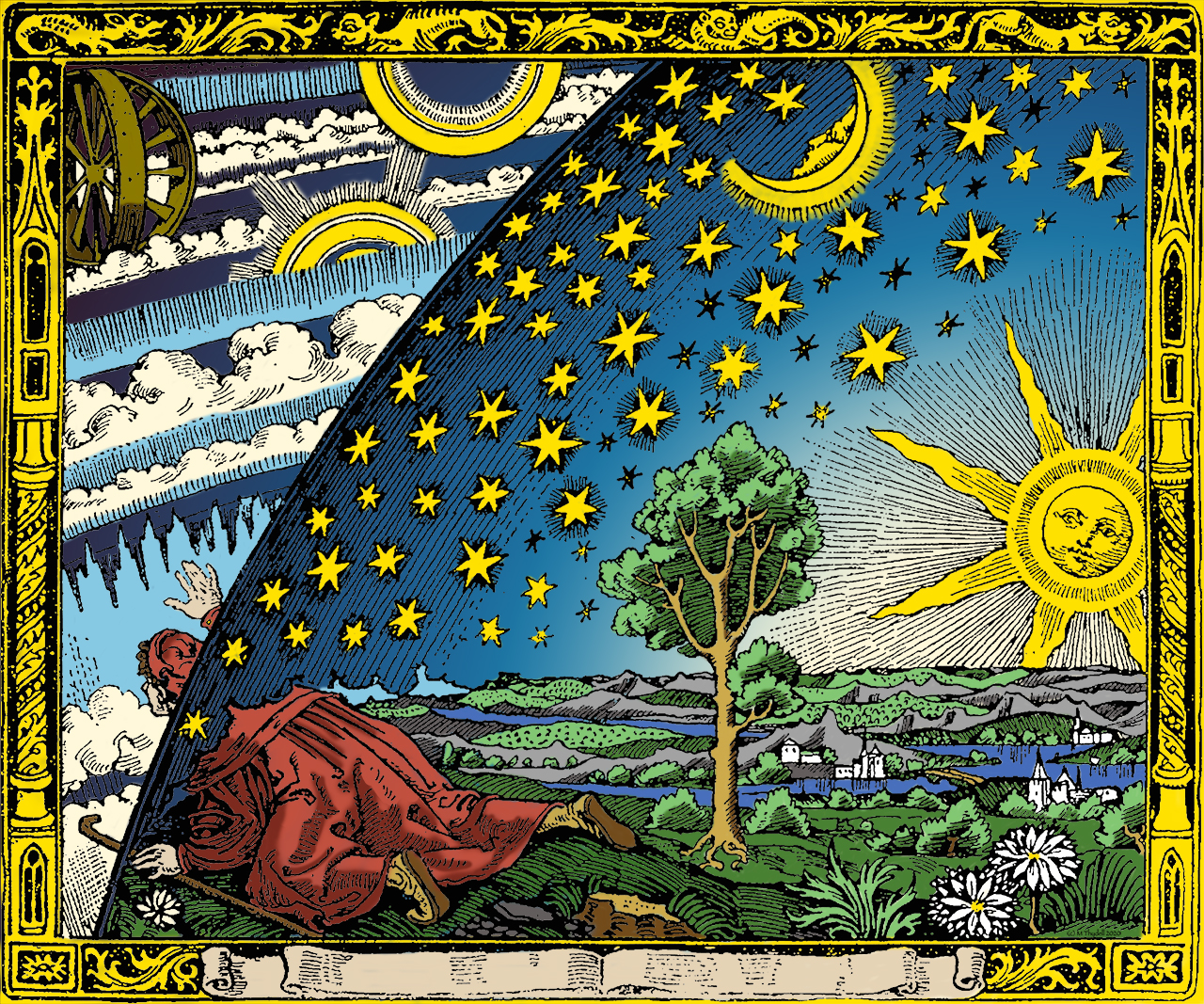Something Sublime about the Cosmos

Phillip Horky is Professor of Ancient Philosophy. He has recently been taking part in the Being Human Festival, a nationwide festival celebrating the value of humanities research for all. He tells us about his research into the Cosmos, which he shared with the public at What on Earth is That? A festival event which considered our relationship with the night sky on 17 January at High Force Waterfall and Hotel.
Tell us about your current research
My interest in the relationship between the human being and the stars is focused on the notion of 'Kosmos', an Ancient Greek word that is routinely transliterated in English as 'Cosmos'. The word 'Kosmos' refers to the ordered universe around us, and it implies notions of balance, harmony, and proportionality; it also implies aesthetic beauty - just the way that we speak of 'cosmetics' as things that are supposed to make one beautiful, striking, or charming. For the Ancient Greeks, it is additionally a concept that applies to human morality and ethics: being a 'cosmic' person implies being in tune with the ordered universe and reflecting its measured nature in our interactions with other people.
How did you become interested in this area?
When I was doing research for my PhD I was working a lot on the relations between concepts across cultures: in this case, I was interested in how the Ancient Persians conceptualized their gods and world, and I started noticing how certain cosmic principles were similar in the texts of the Ancient Iranian peoples (both religious texts and political inscriptions, written in Avestan and Old Persian) and the philosophy of Plato's students in the Academy in Athens. The result of this was an article in which I argued that the students of Plato knowingly and consciously adapted Iranian theological and cosmological tenets to appropriate them to Plato's system of philosophy. This is a watershed event in the history of ancient philosophy, because it is the moment when Greeks are attempting to assimilate the ideas of their old rivals, the Persians, into a universal metaphysical and cosmological system. It also problematises the old notion of the 'Greek miracle' in philosophy.
Why do the humanities have a bearing on how we understand space?
It is likely that the entire universe can be systematically and precisely measured by humans and their instruments. But the meaning of these measures, and the consequences of the structure and history of the universe for humans, have been the subject of discussion for many millennia, across cultures. Indeed, these measurements and calculations are meaningless without attention to the human response to, and interpretation of, them. There is something sublime about the cosmos: we learn deeply about ourselves, both individually and collectively, when we are faced with the vastness of the ordered world, in which we are but ephemeral occupants - living in a blink of an eye, and situated in a tiny speck of space. This is why, according to Aristotle, when Pythagoras was asked about the ultimate purpose of human life, he said it was 'to contemplate the heavens' (Protrepticus, Fragments B16 and B18 Düring).
What are you working on next?
My work on 'kosmos' has mostly been completed, as I edited a volume with many excellent essays on this topic in Ancient Greece and Rome (Cosmos in the Ancient World, Cambridge University Press, 2019). Now I am working on two major projects: a source book of Pythagorean philosophy from the period 250 BCE - 200 CE, which is nearly finished; and a new book project that seeks to illuminate arguments advanced by ancient philosophers in favour of democracy as the best type of government.
Find out more
Find out more about Being Human Festival
Department of Classics and Ancient History
Department of Philosophy
Durham Centre for Ancient and Medieval Philosophy (DCAMP)


/prod01/prodbucket01/media/durham-university/departments-/classics-and-ancient-history/47302-3941X1553.jpg)